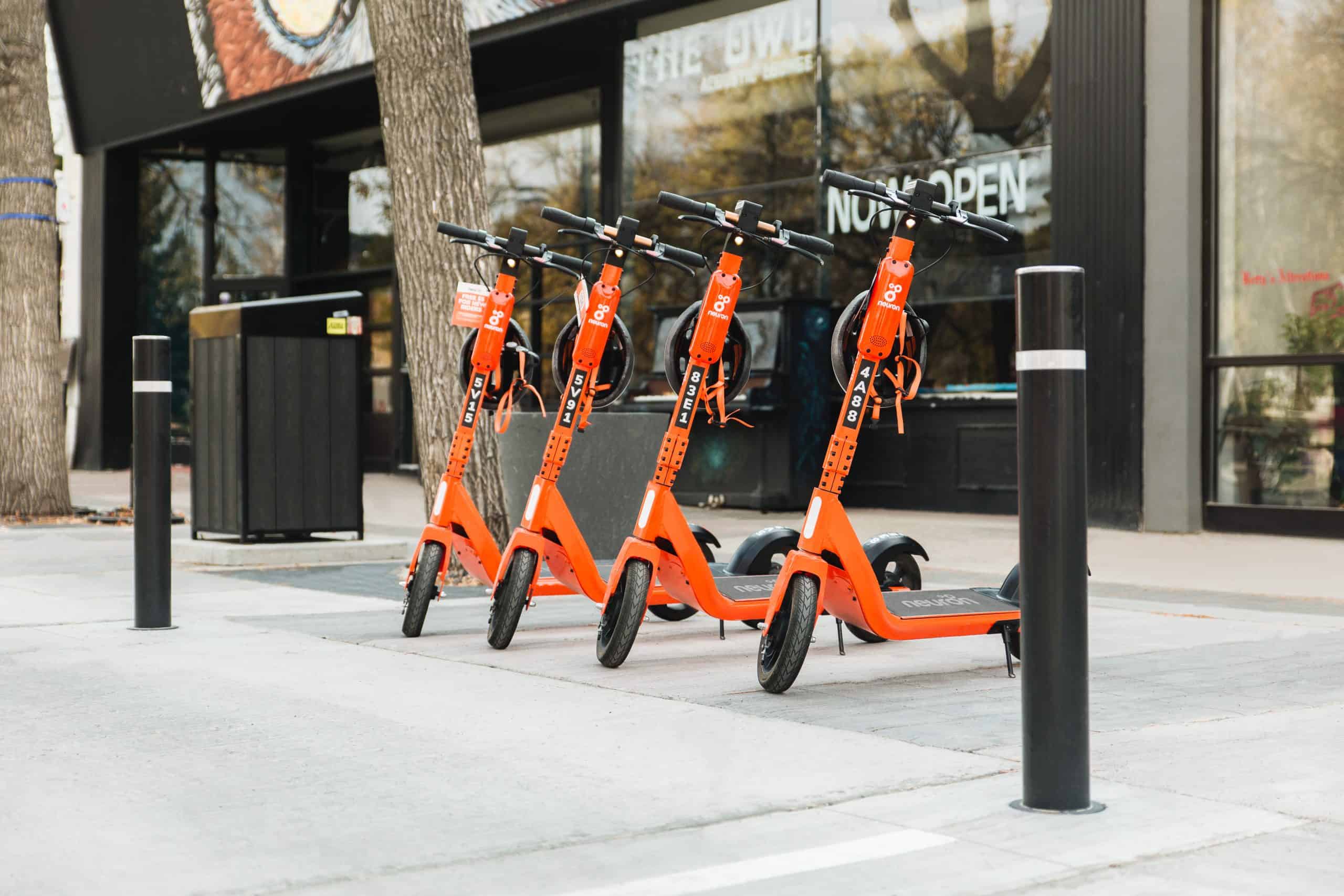E-scooters use way up for people with mobility issues says Brampton rental company
Published September 26, 2023 at 11:04 am

The city’s electric scooter program is giving more accessible transportation options to those living with disabilities according to numbers from a company operating in Brampton.
The data comes from Neuron Mobility, one of three scooter companies under Brampton’s e-scooter pilot project, and shows that the regular use of electric scooters is much higher for people with mobility issues or impairments.
The company found that some 6 per cent of all Neuron riders reported having a disability or mobility impairment, with many respondents saying they have difficulty walking long distances or for extended periods of time.
The e-scooters are part of the city’s pilot project which launched in April, making Brampton the first in the GTA with an electric scooter rental program.
With issues ranging from temporary injuries to chronic back, leg or joint pain, or “invisible conditions” like hip dysplasia, fibromyalgia, or multiple sclerosis, Neuron found customers with impairments are more reliant on e-scooters than the average rider making 26 per cent more trips than they would without a scooter.
Neuron says riders with disabilities are making more use of e-scooters for all manner of trips compared to the average rider, including getting to appointments (25 per cent more trips), commuting (15 per cent more trips), running errands (24 per cent more trips) and connecting to public transit (18 per cent more trips).
Ankush Karwal, head of market for Neuron said the research shows e-scooters are playing “a valuable role” and providing accessible and transportation for “a diverse range of individuals, including those with disabilities or mobility impairments.”
“Neuron is committed to making its service as accessible and inclusive as possible, and by recognizing how those with an invisible condition may rely heavily on e-scooters for their daily commute is an important step in this direction,” Karwal said in a release.
Neuron says it collected data from 2,600 responses across Canadian cities in its network for the report, as well as research in Australia and the U.K.
An update on the e-scooter project in June showed the average trip on a Neuron e-scooter was around 2.1 kilometres and took 13.5 minutes, suggesting that e-scooters are being used for short trips around the city. A survey of riders in Canada found that 45% of Neuron trips replaced the use of a car, and Neuron says the rental scooters are becoming part of the daily commute in Brampton.
The data found Sheridan College, the Downtown and Chinguacousy Park are the most popular places for riders to start and end their trips with many riders using the e-scooters to connect to public transit.
A report by Neuron also found that seven out of every 10 Neuron e-scooter trips result in a purchase with a local business with an average purchase of $27 per trip.
The e-scooters are available from three different companies – Neuron Mobility, Bird Canada, and Scooty Mobility. Each provider has been approved to operate a fleet of 250 to 500 e-scooters, and Each company has its own area of the city to cover and uses a smartphone app which can be used to reserve and rent scooters.
The rentals have an activation fee and users are charged by the minute with the three providers using similar rates for rides – Scooty charges $1.15 to unlock a scooter and 0.40 cents per minute; Neuron charges $1.15 to unlock the scooters and another 0.35 cents per minute; while Bird charges around $1.35 to activate and 0.20 cents per minute.
INsauga's Editorial Standards and Policies

